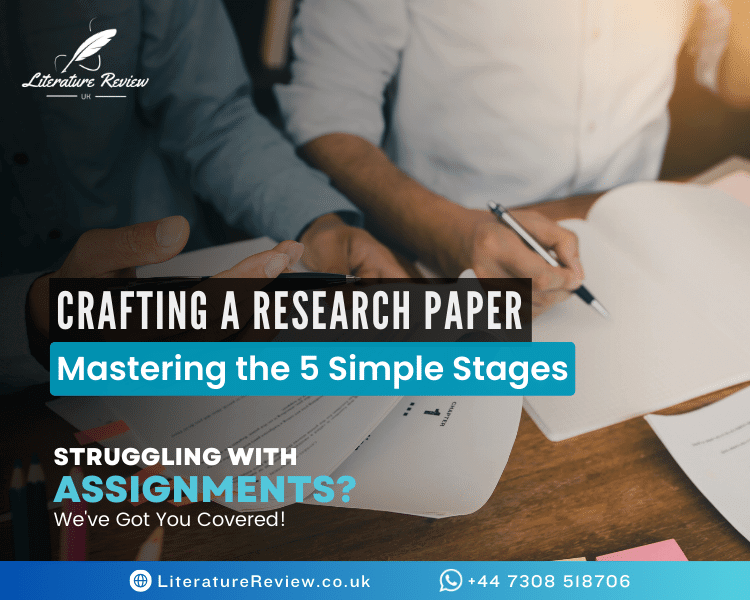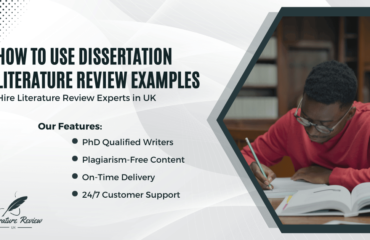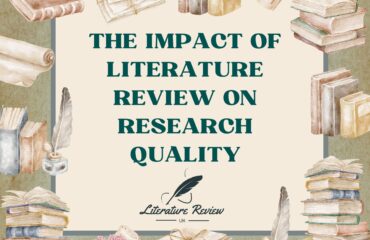
Writing a research paper can be a daunting task, but with the right approach, it can become a manageable and even rewarding process. In this “Research paper writing guide,” we will break down the task into five simple stages to make it easier for you to tackle. Whether you’re a student or a professional, following these “easy steps to write a research paper” will help you produce a high-quality document. Here, we will provide “research paper writing tips,” offer a “step-by-step research paper guide,” and show you “how to write a research paper” effectively, even if you are “writing a research paper in Australia” or anywhere else in the world.
Introduction
The ability to write a well-structured research paper is a vital skill in academia and beyond. This “quick guide to research paper writing” is designed to simplify the process and make it accessible to everyone. By understanding and mastering these “efficient research paper writing process” strategies, you can significantly improve your writing skills and academic performance. So, let’s dive into the “simple steps for research paper writing” that will guide you through each stage of your project.
Stage 1: Planning and Preparation
The foundation of any successful research paper lies in meticulous planning and preparation. This first stage is crucial and can significantly influence the ease and quality of your writing process.
1.1 Understanding the Assignment
Before you begin, it’s essential to fully understand the requirements and expectations of your assignment. Review the guidelines provided by your instructor or the publication you’re submitting to. Clarify any doubts about the topic, length, format, and deadline. This initial step ensures that you are on the right track from the very beginning, saving you from potential pitfalls later on.
1.2 Choosing a Topic
Selecting a suitable topic is one of the most critical decisions in the “research paper writing guide.” Choose a topic that is both interesting to you and relevant to your field of study. It should be neither too broad nor too narrow, allowing you to explore the subject comprehensively within the given constraints. A well-chosen topic makes the research process more enjoyable and engaging.
1.3 Conducting Preliminary Research
Once you have a topic, the next step is to conduct preliminary research. This involves reading general sources to gain a broad understanding of the subject. Use reliable sources such as academic journals, books, and reputable websites. Take notes and highlight key points that will guide your in-depth research later. This preliminary research forms the basis of your literature review and helps refine your research question.
1.4 Formulating a Thesis Statement
Your thesis statement is the central argument or claim of your research paper. It should be clear, concise, and specific. A strong thesis statement guides your research and writing, providing a focus that keeps your paper coherent and on track. Spend time crafting a thesis statement that accurately reflects the essence of your research.
Stage 2: Research and Data Collection
With a clear plan in place, the next step in the “step-by-step research paper guide” is to gather detailed information and data to support your thesis.
2.1 Conducting In-Depth Research
Deep dive into your topic by exploring various academic sources. Utilize libraries, online databases, and other resources to find relevant and credible information. Pay attention to the quality and reliability of your sources. Organize your findings systematically, using tools like digital note-taking apps or traditional index cards.
2.2 Taking Detailed Notes
As you research, take detailed notes on the information that is most pertinent to your thesis. Record quotes, data, and summaries, along with proper citations to avoid plagiarism. Categorize your notes according to themes or subtopics that align with the structure of your paper.
2.3 Evaluating Sources
Not all sources are created equal. Critically evaluate the credibility, relevance, and bias of each source. Peer-reviewed journals, books by reputable authors, and official reports are typically reliable. Be cautious with sources like blogs, non-academic websites, and opinion pieces unless they offer valuable insights supported by evidence.
2.4 Managing Your References
Properly managing your references from the start can save you a lot of time later. Use reference management software like EndNote, Zotero, or Mendeley to organize your sources and format citations according to the required style guide. This step ensures that your bibliography is accurate and complete.
Stage 3: Writing the First Draft
With your research completed, it’s time to begin writing. This stage is where your ideas start to take shape on paper.
3.1 Creating an Outline
An outline is a roadmap for your paper. It organizes your main points and supporting details logically. Your outline should include an introduction, literature review, methodology, results, discussion, and conclusion. Each section should be clearly defined, with subheadings where necessary. A well-structured outline helps maintain a coherent flow and ensures that no crucial points are omitted.
3.2 Writing the Introduction
The introduction sets the stage for your research paper. It should provide background information on your topic, highlight the significance of your study, and present your thesis statement. The introduction should engage readers and provide a clear overview of what to expect in the paper.
3.3 Developing the Body
The body of your research paper is where you present your arguments and evidence. Follow the structure outlined in your plan, ensuring each section logically leads to the next. Use topic sentences to introduce each paragraph and support your claims with evidence from your research. Maintain a clear and consistent voice throughout.
3.4 Crafting the Conclusion
The conclusion should summarize your main findings, restate the significance of your study, and suggest potential areas for further research. It should not introduce new information but rather provide a concise wrap-up of your arguments. A strong conclusion leaves a lasting impression on your readers.
Stage 4: Revising and Editing
Writing the first draft is just the beginning. The revision and editing stage is where you refine your paper to ensure clarity, coherence, and correctness.
4.1 Reviewing Your Draft
Take a break after completing your first draft. Returning to your work with fresh eyes can help you spot errors and areas for improvement. Read through your draft critically, looking for logical inconsistencies, unclear arguments, and structural issues. Ensure that your paper flows smoothly from one section to the next.
4.2 Editing for Clarity and Style
Editing involves more than just correcting grammar and spelling mistakes. Focus on improving the clarity and style of your writing. Ensure that your language is precise and your arguments are articulated clearly. Vary your sentence structure to maintain reader interest and eliminate redundant or vague phrases.
4.3 Checking Citations and References
Ensure that all sources are properly cited in the text and listed in the bibliography. Check that your citations conform to the required style guide (APA, MLA, Chicago, etc.). Proper citation is crucial for academic integrity and avoiding plagiarism.
4.4 Proofreading
The final step in this stage is proofreading. Carefully read through your paper to catch any remaining spelling, punctuation, or formatting errors. Consider reading your paper aloud or using tools like Grammarly to identify mistakes you might have missed. A well-proofread paper enhances readability and professionalism.
Conclusion
Writing a research paper can be a challenging yet rewarding endeavor. By following this “efficient research paper writing process,” you can navigate each stage with confidence and produce a high-quality document. Remember, the key lies in meticulous planning, thorough research, structured writing, and diligent revision. Whether you are “writing a research paper in Australia” or elsewhere, these “research paper writing strategies” will serve you well.
If you found this “quick guide to research paper writing” helpful or have additional tips to share, we’d love to hear from you! Please leave a comment below with your thoughts and experiences. Your feedback can help others on their journey to mastering the art of research paper writing.




